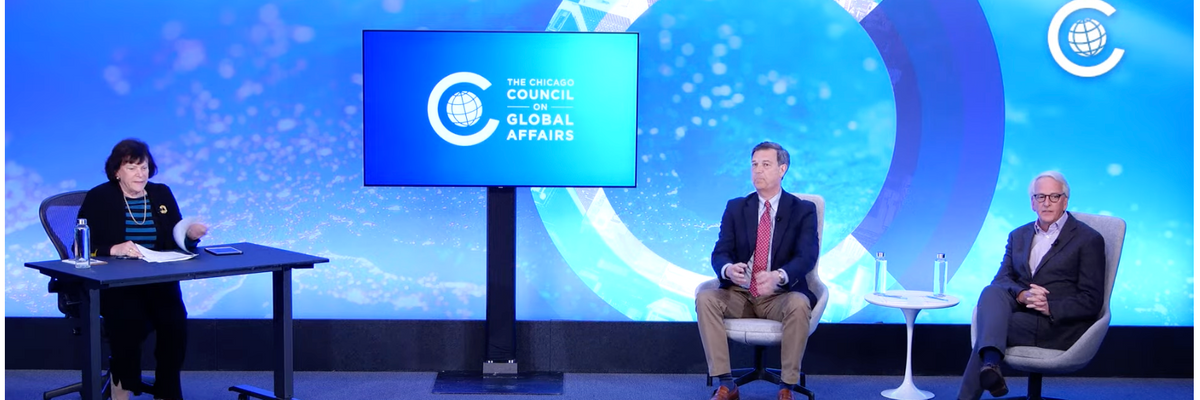On Monday, the Chicago Council on Global Affairs hosted a debate between the Quincy Institute's director of Grand Strategy George Beebe and CCGA's president, Ivo Daalder, looking back at the first year of the Russia-Ukraine war, previewing concerns for the upcoming months, analyzing prospects for a negotiated settlement between the two countries, and more.
Both debaters believed it unlikely that either side could claim a victory on the battlefield anytime soon, with Daalder saying the question was "Who over time will have sufficient capability to change military status quo?," and predicting "neither side is likely to have that for many, many years. And that you will be in this situation where this conflict and the line of conflict may move back and forth."
Beebe agreed with this general assessment, but worried that Russia could wreck Ukraine, even if it couldn't secure a clear battlefield win. For Beebe, this risk means that Ukraine and the West should pursue a negotiated settlement, which will require changing the frame through which they both understand this war. That solution will have to address not only territorial questions, but also the security concerns of all involved countries, including Russian fears of living with a Ukraine that is a military outpost of the United States.
"Finding some way of addressing Ukraine’s legitimate security concerns, America and Europe’s legitimate security concerns, and also finding a way to address Russian concerns is necessary," Beebe said.
"Unless we are willing to address that, I don’t think there are prospects for a negotiated settlement to this war. But if we are, if we're willing to talk about that, then I think the territorial issue might be able to be kicked down the road (...) and in the meantime, bring this conflict under control."
Watch the full debate here:














